Related Research Articles
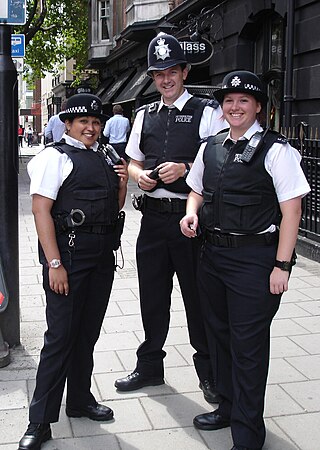
Law enforcement in the United Kingdom is organised separately in each of the legal systems of the United Kingdom: England and Wales, Scotland, and Northern Ireland. Most law enforcement duties are carried out by those who hold the office of police constable of a territorial police force.
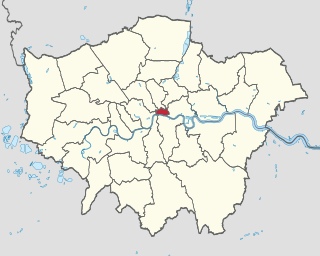
The City of London Police is the territorial police force responsible for law enforcement within the City of London, England, including the Middle and Inner Temples. The force responsible for law enforcement within the remainder of the London region, outside the city, is the much larger Metropolitan Police, a separate organisation. The City of London, which is now primarily a financial business district with a small resident population but a large commuting workforce, is the historic core of London, and has an administrative history distinct from that of the rest of the metropolis, of which its separate police force is one manifestation.
Chief constable is the rank used by the chief police officer of every territorial police force in the United Kingdom except for the City of London Police and the Metropolitan Police, as well as the chief officers of the three 'special' national police forces, the British Transport Police, Ministry of Defence Police, and Civil Nuclear Constabulary. The title is also held by the chief officers of the principal Crown Dependency police forces and the Sovereign Base Areas Police in Cyprus. The title was also held, ex officio, by the president of the Association of Chief Police Officers under the Police Reform Act 2002. It was also the title of the chief officer of the Royal Parks Constabulary until this agency was disbanded in 2004.

Derbyshire Constabulary is the territorial police force responsible for policing the county of Derbyshire, England. The force covers an area of over 1,000 square miles (3,000 km2) with a population of just under one million.

The Mersey Tunnels Police is a small, specialised, non-Home Office police force that provides policing services for the Mersey Tunnels in Merseyside, England. The force, which comprises fifty one officers from Constable to Chief Police Officer is responsible for effective road policing of the Mersey Tunnels, Approach Roads and Exit Roads. It is privately funded by Merseytravel which in turn reports to the Liverpool City Region Combined Authority.

The Civil Nuclear Constabulary (CNC) is a special police force responsible for providing law enforcement and security at any relevant nuclear site and for security of nuclear materials in transit within the United Kingdom. The force has over 1,500 police officers and support staff. Officers within the force are authorised firearms officers due to the nature of the industry the force protects.
Police commissioner is a senior rank in many police forces of the world. In other jurisdictions, it is the title of a member of an oversight board.

The City of Glasgow Police or Glasgow City Police was the police covering the city and royal burgh of Glasgow, from 1800 to 1893, and the county of city of Glasgow, from 1893 to 1975. In the 17th century, Scottish cities used to hire watchmen to guard the streets at night, augmenting a force of unpaid citizen constables. On 30 June 1800 the authorities of Glasgow successfully petitioned the British Government to pass the Glasgow Police Act establishing the City of Glasgow Police. It served Glasgow from 1800 to 1975, when it was amalgamated into Strathclyde Police.
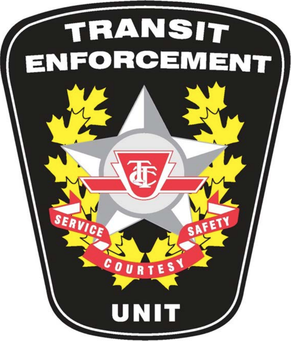
The Transit Enforcement Unit is a special constabulary maintained by the Toronto Transit Commission (TTC) in Toronto, Ontario, Canada. First established in 1997, the Unit consists of special constables and provincial offences officers, referred to internally as transit fare inspectors. The unit's special constables have the full powers of a police power on or in relation to TTC property, and, as of 2023, the unit employs 101 special constables out of an authorized complement of 145.
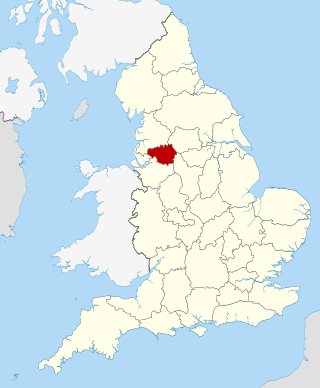
Greater Manchester Police (GMP) is the territorial police force responsible for law enforcement within the metropolitan county of Greater Manchester in North West England.
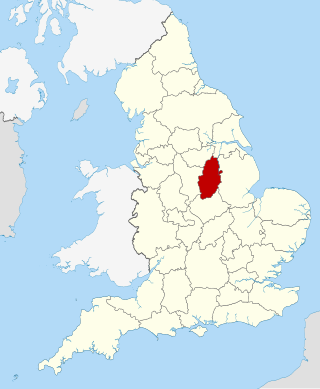
Nottinghamshire Police is the territorial police force responsible for policing the shire county of Nottinghamshire and the unitary authority of Nottingham in the East Midlands area of England. The area has a population of just over 1 million.

Lincolnshire Police is the territorial police force covering the non-metropolitan county of Lincolnshire in the East Midlands of England. Despite the name, the force's area does not include North East Lincolnshire and North Lincolnshire, which are covered by Humberside Police instead.

The Royal Falkland Islands Police (RFIP) is the territorial police force responsible for law enforcement within the Falkland Islands. The current Chief Police Officer is Superintendent Barry Thacker. The Falkland Islands Police Force was granted the "Royal" prefix by Queen Elizabeth II on 1 January 1992.
Manchester Airport Police is a defunct police force of the United Kingdom, formerly responsible for policing Manchester Airport, in Manchester, England.

Manchester Ship Canal Police was a police force in the United Kingdom that was responsible for policing the Manchester Ship Canal. It was maintained by the Manchester Ship Canal Company between 26 December 1893, when the canal opened, and 31 January 1993.
Liverpool Parks Police was a police force maintained by the Corporation of Liverpool to police the parks and open spaces owned by the city. The first record of "park constables" in Liverpool is from 1832, although members of the force were not sworn in as constables in their own right until 1882. The force was disbanded in 1972.
Liverpool Markets Police was a police force maintained by Liverpool City Council to police the markets owned by the city.
Brighton Parks Police was a park police force maintained by Brighton Borough Council for the borough of Brighton, England.
Salford City Police was the police force responsible for policing the borough of Salford, near Manchester, England from 1844 through to 1968. Prior to Salford gaining city status in 1926 the force was called Salford Borough Police.
References
- ↑ "Ernie Thompson - Market Police". Flickr . Greater Manchester Police . Retrieved 18 May 2020.
- 1 2 Thomason, Carmel (16 November 2018). "Former Chief Inspector, Ernie Thompson shares his memories in new exhibition at The Greater Manchester Police Museum". Quays Life. Retrieved 18 May 2020.
- ↑ Hannon, Thomas (April 1996). "The changing division of policing labour: with particular emphasis on the policing of shopping centres" (PDF). Middlesex University Research Repository: 277. Retrieved 19 May 2020. Hannon refers to the "Manchester Markets Act 1879", but no act by this name was passed in 1879. There was a Manchester Market Act in 1846 (9 & 10 Vict. c.ccxix)